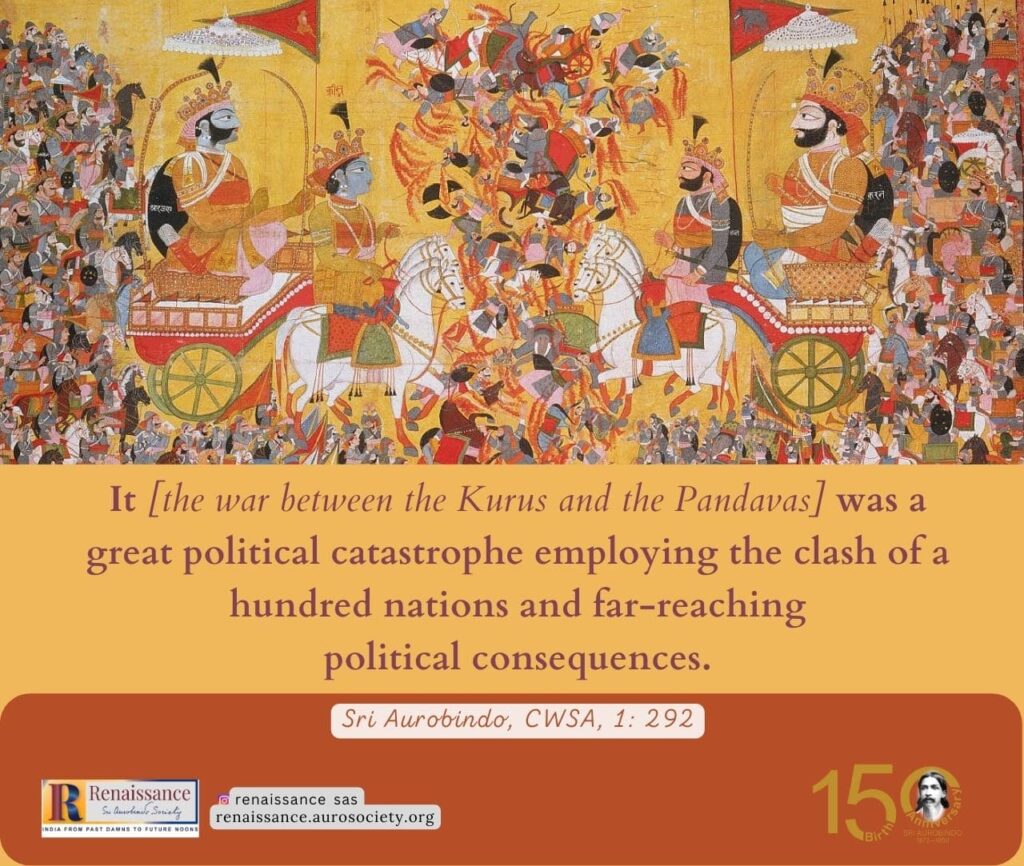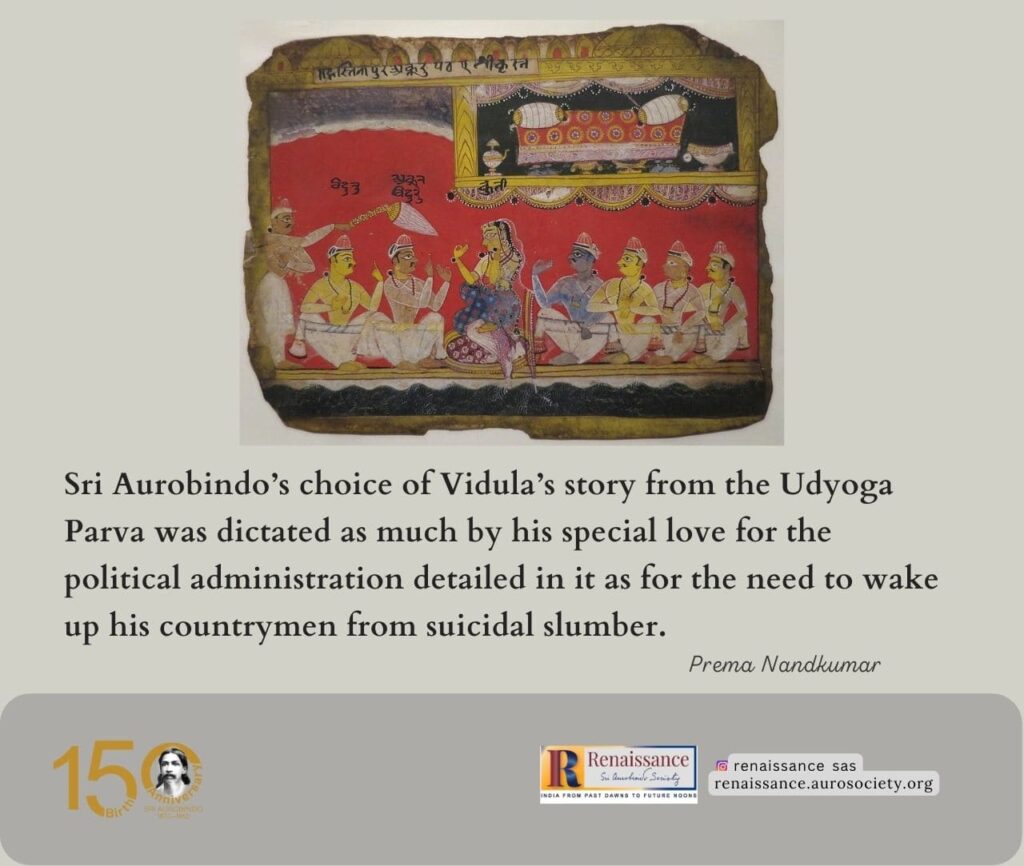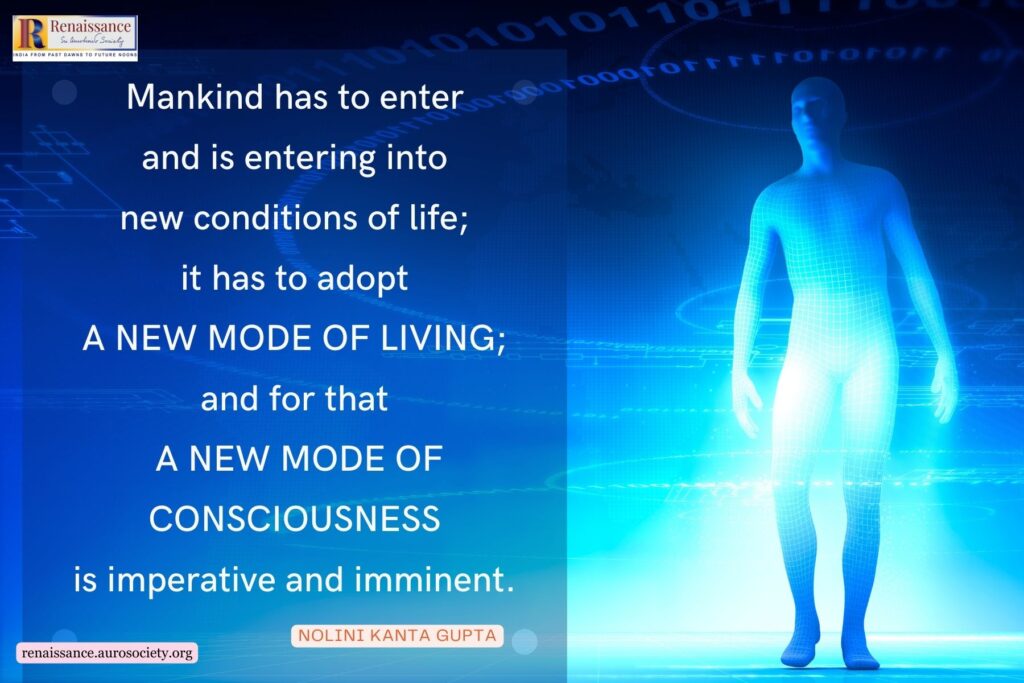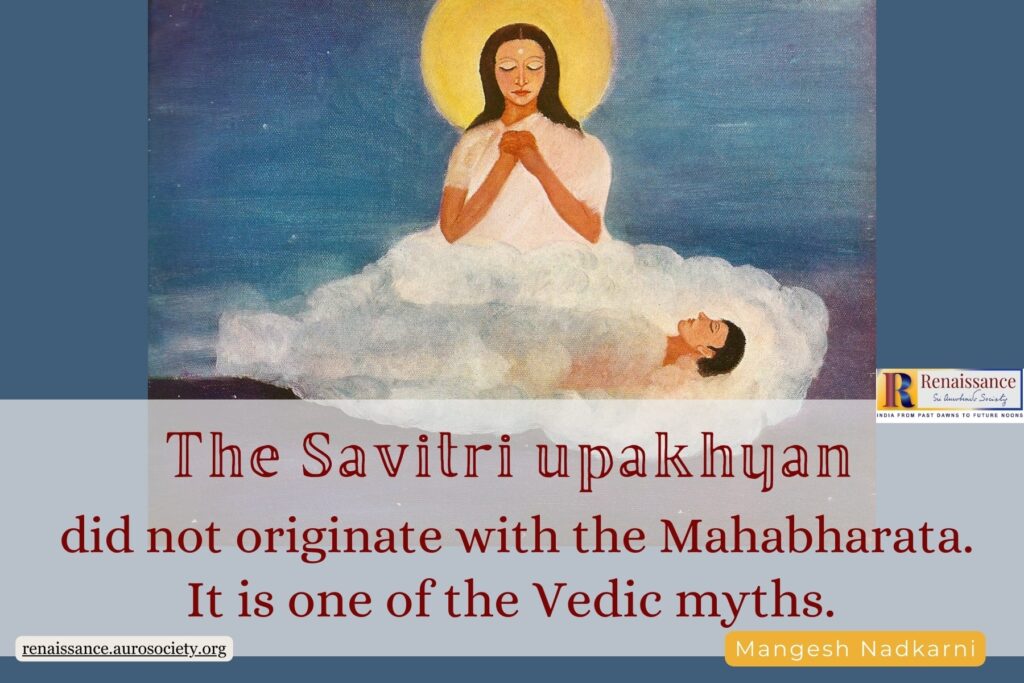Continued from PART 2
Political Passage in Translation
That one of the approaches of Sri Aurobindo to the Mahabharata was from the political point of view need hardly surprise us. The beginning of his Mahabharata studies in Baroda coincided with his baptism in Indian politics at the close of the last century. No wonder, then, that the passages from the epic that he chose to translate from time to time had a direct relationship with the nationalist politics of which he was a key figure. There are also the significant analytical notes on chosen words in the Udyoga Parva and his estimate of the character of Krishna as an ambassador who was genuinely interested in peace.
It will be seen from Krishna’s attitude here [Udyoga Parva, Canto I, verse 13] as elsewhere that he was very far from being the engineer & subtle contriver of war into which later ideas have deformed him. That he came down to force on war & destroy the Kshatriya caste whether to open India to the world or for other cause, is an idea that was not present to the mind of Vyasa.
Later generations writing when the pure Kshatriya caste had almost disappeared, attributed this motive for God’s descent upon earth, just as a modern English Theosophist, perceiving British rule established in India, has added the corollary that he destroyed the Kshatriyas (five thousand years ago, according to her own belief) in order to make the line clear for the English.
~ Sri Aurobindo, CWSA, Vol. 1, p. 347

A comparison with the current ills flowing from the alien British governance was no doubt intended when excerpts from the Sabha Parva were given, insinuating the possibilities should a dharmarajya be established after freeing the land from foreign yoke. Here is Sri Aurobindo’s translation from Canto II of the Sabha Parva:
The thriving provinces were void of fear;
~ Sri Aurobindo, CWSA, Vol. 1, p. 42
Strife was forgotten and each liberal year
The rains were measured to desire; no man
The natural limit of his course outran:
Usury, tillage, rearing, merchandise
Throve with good government and sacrifice
Prospered; rack-renting was not nor unjust
Extortion; from the land was pestilence thrust,
And mad calamity of fire unknown
Became while this just monarch had his own.
On the lack of proper advisers to a man in power, thus says Yudhishthira to Krishna:
And now though all my friends are one
~ Sri Aurobindo, CWSA, Vol. 1, p. 45
To bid me forward, yet do I attend
From thy voice only certainty, O friend.
Some from affection lovingly suppress
Their friend’s worst fault and some from selfishness,
Speaking what most will please. Others conceal
Their own good with the name of commonweal.
Such counsel in his need a monarch hath.
But thou art pure of selfish purpose; wrath
And passion know thee not; and thou wilt tell
What shall be solely and supremely well.”
Again, the episode of the slaying of Jarasandha is chosen as if to charge Indians with an accession of strength against the overwhelming might of the British colonial rule:
The unstrenuous king, unhardy, unvigilant
~ Sri Aurobindo, CWSA, Vol. 1, p. 52
Sinks like an anthill; nor the weak-kneed less
Who on a stronger leans his helplessness.
But the unsleeping and resourceful man
With wide and adequate attempt oft can
His mightier enemy vanquish: . . .
There are times when an emperor becomes a tyrant and the duty of the hero becomes quite clear. Passive resistance or unmanly obedience: neither will do. Besides, when the freedom of one’s land is threatened, war is the only way out.
Sri Aurobindo’s choice of Vidula’s story from the Udyoga Parva was dictated as much by his special love for the political administration detailed in it as for the need to wake up his countrymen from suicidal slumber.
The Vidula Upakhyana, which is in the form of an extended conversation, covers four cantos (133-136) of the Udyoga Parva. Sri Aurobindo, however, did not attempt a full translation, and what we are given is but a “free poetic paraphrase”.
The original is long, fierce, unyielding, wisdom-encrusted. Vyasa’s Vidula is bold and strong, and knows what true love is. If she should keep silent owing to a mother’s sentimental love to see her son “safe”, hers would be “the love of a donkey”. It is her duty to urge her son to action, and she does it with appropriately scorching words.

The English version by Sri Aurobindo carried the caption “The Mother to Her Son”. Appearing in the Bande Mataram at the height of the Nationalist movement almost 80 years ago, it sounded like Mother India speaking to her children.
Out to battle, do thy man’s work, falter not in high attempt;
~ Sri Aurobindo, CWSA, Vol. 2, pp. 106-107
So a man is quit before his God and saved from self-contempt.
[. . .]
Sunjoy, Sunjoy, waste not thou thy flame in smoke! Impetuous, dire,
Leap upon thy foes for havoc as a famished lion leaps,
Storming through thy vanquished victors till thou fall on slaughtered heaps.
To be continued. . .
Read: PART 1, PART 2
Click HERE for the four-part series on the Ramayana.
~ Design: Beloo Mehra
~ All Mahabharata images used in this feature are in public domain and are accessed through Wiki Commons.


